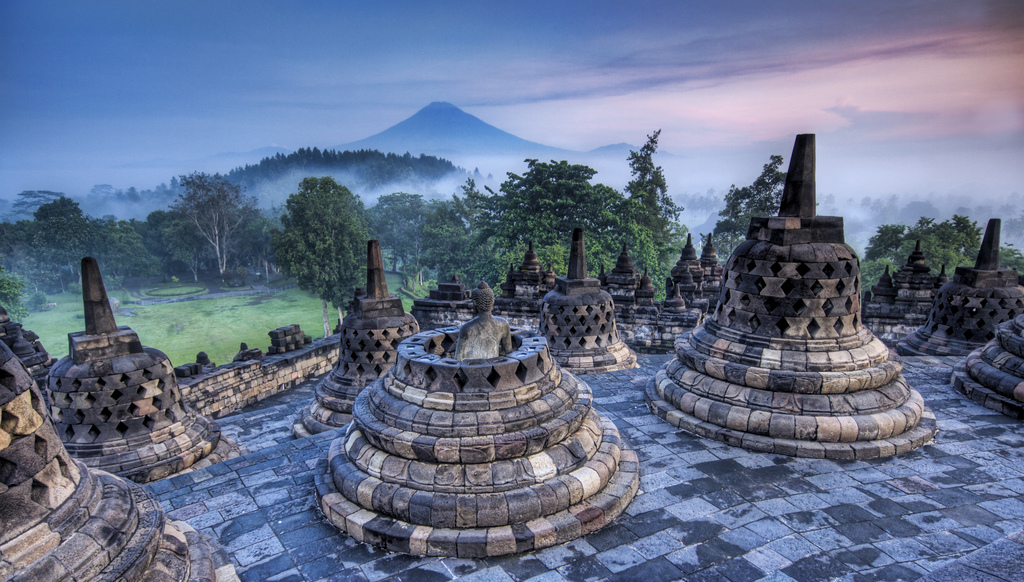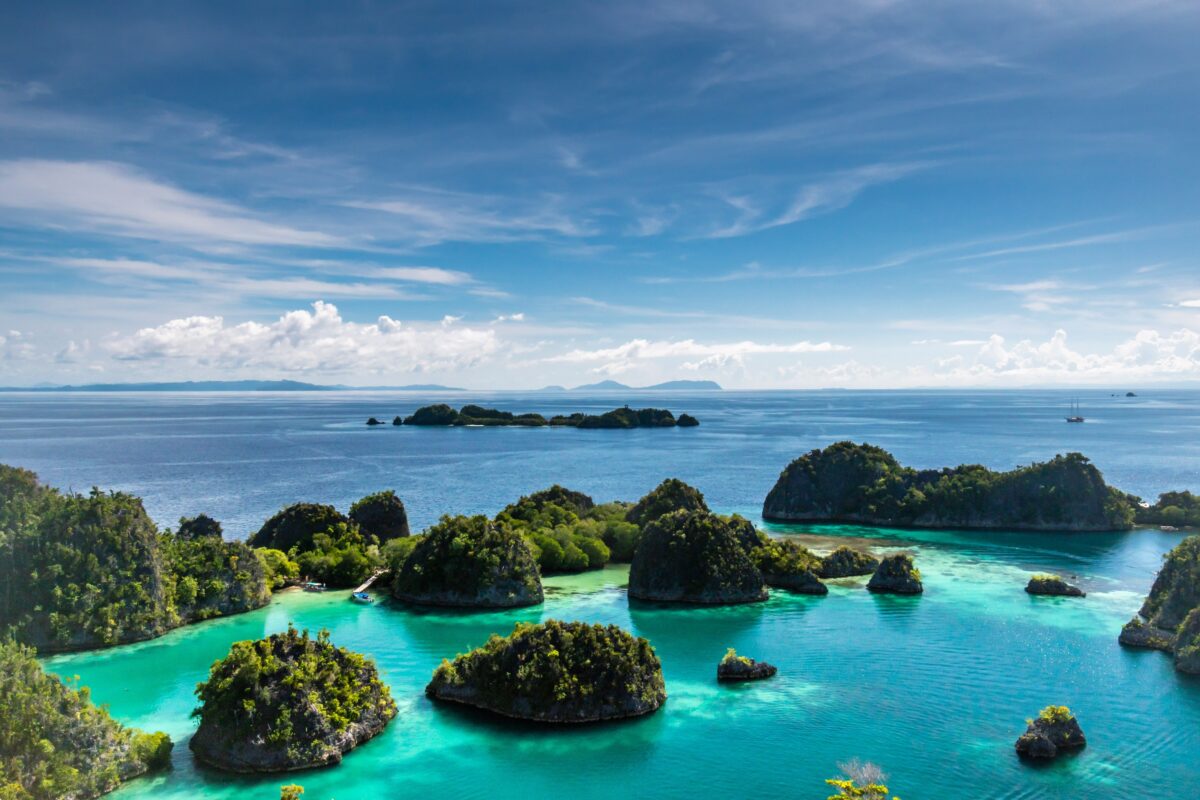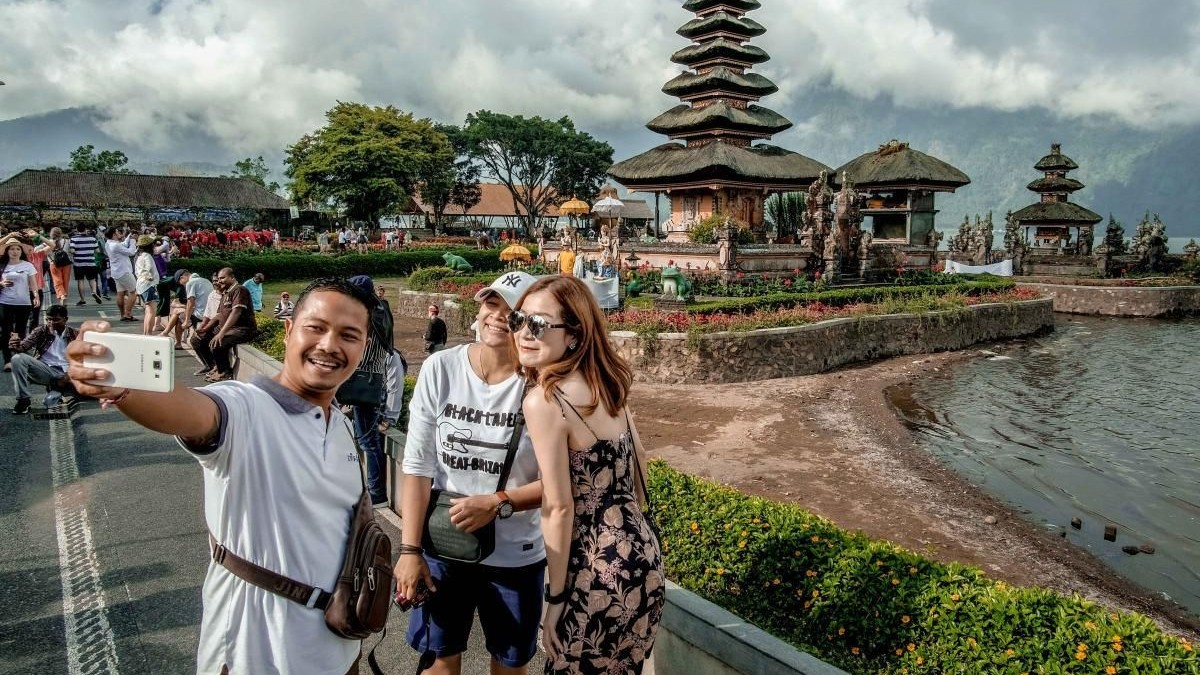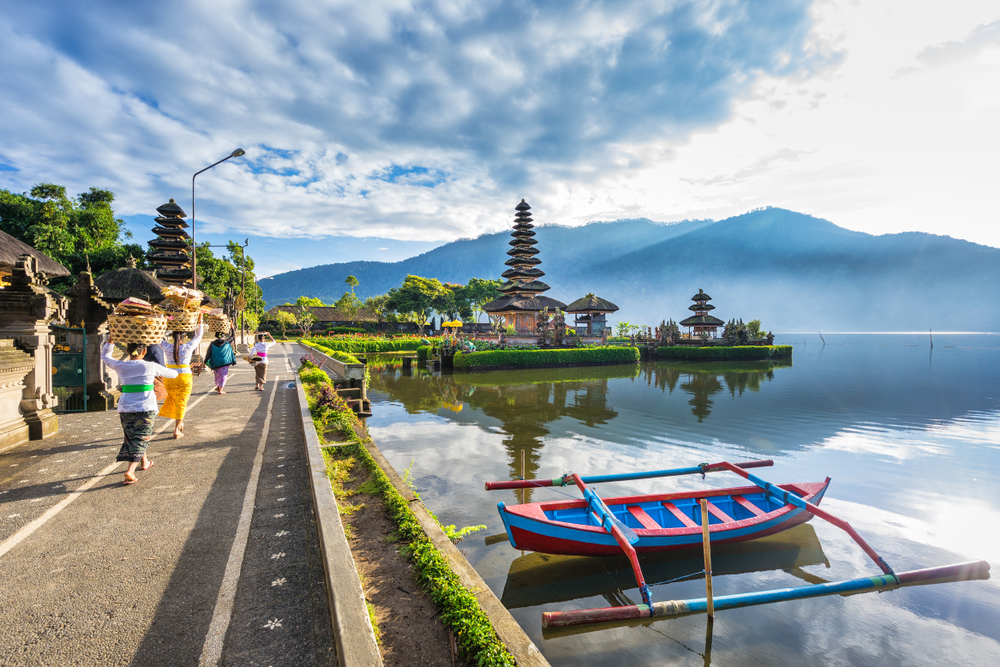Indonesia is a Southeast Asian country that is famous for its diverse culture, beautiful landscapes, and rich natural resources. It is also the fourth most populous country in the world, with over 270 million people spread across more than 17,000 islands. With such a large population and vast land area, this nation has become an emerging market that attracts both local and international investors. However, like any other country, this nation has its own set of challenges and opportunities when it comes to business and economic growth. In this article, we will delve deeper into explore what makes this country a unique and promising investment destination.
The History and Culture of Indonesia
Indonesia has a long and complex history that has shaped its current society and culture. This archipelagic nation was home to various kingdoms and empires, including the Srivijaya, Mujaahid, and Mataram Sultanate. These strong dynasties left a significant influence on Indonesian culture, especially in terms of religion and language. In 1945, this country finally gained its independence from Dutch colonial rule, and since then, the country has undergone significant political, social, and economic changes.
The Influence of Hinduism and Buddhism
Before Islam became the dominant religion in Indonesia, Hinduism and Buddhism were already present in the country since the 4th century. The arrival of these religions brought along their cultural elements, such as architecture, literature, and philosophy. Even today, remnants of Hindu and Buddhist influences can still be seen in certain regions of this nation, particularly in Bali and Central Java.

Hinduism and Buddhism had been established in Indonesia since the 4th century, predating the dominance of Islam as the country’s primary religion
The Impact of Colonialism
The Dutch colonization of Indonesia lasted for over 300 years, from the early 17th century until the end of World War II. During this time, this country experienced significant changes, not only politically but also in terms of cultural assimilation. The Dutch introduced Christianity and the Latin alphabet, which are still prevalent in this nation today. They also established trading posts and industries, which became the foundation of the country’s economy.
The Diversity of Indonesia
One of the factors that make Indonesia a unique country is its diverse population, with over 300 ethnic groups and more than 700 languages spoken. The biggest ethnic group is the Javanese, comprising around 40% of the total population. Other prominent groups include the Sundanese, Batak, Balinese, and Malay. This diversity has contributed to the richness of Indonesian culture, with various traditions, cuisines, and customs being celebrated throughout the year.
Indonesia’s Economy: Challenges and Opportunities
Indonesia has a mixed economy, with both public and private sectors playing a vital role in driving growth and development. Over the years, the country has made significant progress in terms of GDP growth, foreign investments, and poverty reduction. However, like any other developing nation, this nation also faces several challenges that hinder its full potential for economic advancement.
The Impact of Natural Resources
Indonesia is blessed with abundant natural resources, such as coal, oil, and natural gas. These resources have been the backbone of the country’s economy, with the mining and energy sectors contributing significantly to its GDP. However, the over-reliance on these resources has also posed some challenges, such as environmental degradation and unequal distribution of wealth. Moreover, fluctuations in global commodity prices can also affect Indonesia’s economy, making it vulnerable to external factors.

Infrastructure Development
Infrastructure development is crucial for any growing economy, and Indonesia is no exception. While the country has seen improvements in this aspect, there is still much room for growth, particularly in rural areas. This country has invested heavily in transportation, energy, and telecommunication infrastructure, but there are still gaps that need to be addressed, such as inadequate road networks and limited access to electricity in some areas. These challenges can affect the country’s productivity and competitiveness, hindering its potential for further growth.
Political Stability and Corruption
Political stability is essential for any country’s economic growth, and Indonesia has made significant strides in this aspect since its independence. However, corruption remains a persistent issue that hinders the country’s progress. Despite government efforts to combat corruption, it still exists in various forms, from petty bribery to high-level embezzlement. This undermines public trust and creates barriers for businesses, both local and international, to thrive in this nation.
Investment Opportunities in Indonesia
Despite the challenges mentioned above, Indonesia presents several investment opportunities that are attractive to both local and foreign investors. The country’s large and growing market, coupled with its strategic location between Asia and Australia, makes it an ideal destination for companies looking to expand their business.
Manufacturing Sector
Indonesia’s manufacturing sector has been on the rise in recent years, with industries such as textiles, automotive, electronics, and food and beverages experiencing significant growth. The country’s abundant labor force, coupled with competitive production costs, make it an attractive location for manufacturing businesses. Moreover, the Indonesian government offers various incentives, such as tax breaks and simplified licensing procedures, to encourage more foreign investments in this sector.
Tourism Industry
As a country with thousands of beautiful islands and diverse cultures, it is no surprise that tourism is one of the fastest-growing sectors in Indonesia. The country welcomed over 16 million tourists in 2019, an increase from the previous year, and the government aims to attract 20 million tourists by 2025. With a variety of attractions, from cultural heritage sites to pristine beaches, this nation has huge potential for further growth in the tourism industry. The government has taken steps to promote sustainable tourism and improve infrastructure to cater to the increasing number of visitors.

Given its numerous picturesque islands and diverse cultures, Indonesia’s rapid growth in tourism comes as no surprise
Digital Economy
With the rapid advancement of technology, Indonesia is also focusing on developing its digital economy. The country has seen a significant rise in the number of internet users and smartphone penetration, making it an attractive market for e-commerce and other digital services. The government has launched initiatives to support startups and promote the growth of the digital economy, such as creating a regulatory sandbox and providing tax incentives for tech companies.
Doing Business in Indonesia
For foreign investors looking to enter the Indonesian market, understanding the local business culture and regulations is crucial. While Indonesia is known for its friendly and hospitable people, it also has its own set of rules and customs that can affect how business is conducted. Here are some important things to keep in mind when doing business in this country.
Building Relationships and Trust
Indonesians place great importance on relationships and trust in business dealings. It is essential to build a good rapport with potential partners and clients before discussing any business matters. This can involve socializing over meals or participating in cultural activities. Taking the time to get to know your Indonesian counterparts will help to establish long-lasting partnerships and ensure smooth business transactions.
Understanding the Concept of “Saving Face”
In Indonesian culture, maintaining harmony and avoiding confrontations is highly valued. Therefore, it is crucial to handle conflicts or disagreements delicately, so as not to offend or embarrass anyone. This concept is known as “saving face,” and it is important to be mindful of this when conducting business in this country. Being respectful and diplomatic can go a long way in building strong relationships and avoiding misunderstandings.
Navigating the Regulatory Environment
Like any other country, Indonesia has its own set of laws and regulations that businesses need to comply with. However, the bureaucratic process can be challenging and time-consuming, especially for foreign investors who are unfamiliar with the system. Having a trusted local partner who understands the regulatory environment can be beneficial in navigating the necessary procedures and requirements for setting up a business in this nation.
The Social and Cultural Landscape of Indonesia
To truly understand Indonesia, one must also appreciate its diverse and colorful social and cultural landscape. As mentioned earlier, this country has over 300 ethnic groups, each with their own traditions and customs. Let’s take a closer look at some aspects of Indonesian society and culture that are unique to this country.
Religion and Beliefs
Indonesia is the largest Muslim-majority country in the world. Around 87% of the population identify as Muslim, while the remaining are mostly Christians, Hindus, and Buddhists. Despite the dominance of Islam, this nation practices a moderate form of the religion, with influences from local cultures and beliefs. This makes this country a tolerant and diverse society, where people from different faiths can live harmoniously.
Festivals and Celebrations
With its rich heritage and diversity, Indonesia celebrates various festivals and holidays throughout the year. Some of the most famous include Idul Fitri, a Muslim holiday that marks the end of Ramadan; Chinese New Year, which is celebrated by the Chinese community; and Nyepi, the Balinese New Year. These celebrations often involve colorful parades, traditional performances, and delicious food, making it an exciting time to visit this nation.
Cuisine and Culinary Traditions
Indonesian cuisine is a fusion of various influences, creating a unique blend of flavors and spices. The country’s cuisine varies from region to region, with each having its own specialty dishes. Some of the popular dishes in Indonesia include nasi goreng (fried rice), sate (grilled skewered meat), and rendang (spicy beef curry). Indonesians also have a strong tea-drinking culture, with various types of tea being served alongside snacks or meals.
The Future of Indonesia
This nation has come a long way since its independence, and the country’s future looks promising. The government has set ambitious targets for economic growth and development, with a focus on improving infrastructure, reducing poverty, and promoting sustainable practices. Moreover, this nation is also positioning itself as a regional leader, with initiatives such as the “Indonesia ASEAN Outlook on the Indo-Pacific” and hosting various international events, such as the Asian Games in 2018.
However, there are still challenges that need to be addressed, such as inequality, corruption, and environmental issues. As the country continues to develop, it will also face new challenges, particularly in terms of balancing economic growth with sustainability. Nevertheless, Indonesia remains a country with huge potential, and with the right strategies and policies in place, it can become one of the leading economies in the region.
Conclusion
In conclusion, Indonesia may refer to the country’s unique culture, diverse society, and dynamic economy. As we have explored in this article, this nation offers a mix of challenges and opportunities for those interested in investing or doing business in the country. From its complex history to its rich cultural heritage, Indonesia is a country worth exploring and understanding for anyone looking to tap into its potential for growth and development. With its strategic location, abundant natural resources, and young and dynamic population, this country is indeed an emerging market that should not be underestimated.








